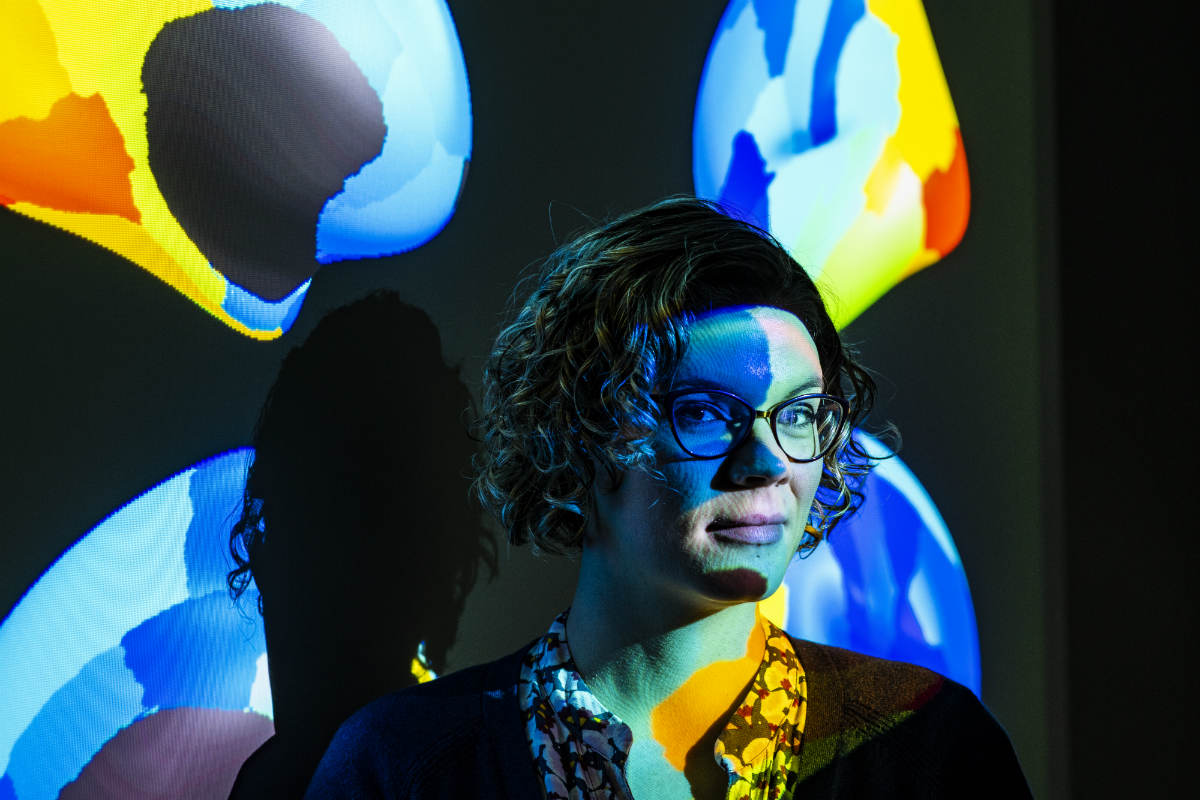
Alona Fyshe is an assistant professor cross-appointed in the Department of Computing Science and Department of Psychology. Here, Fyshe is pictured with brain imaging data showing how we process meaning-a subject of study that could lead to computers that understand us better. Photo credit: John Ulan
The best way to improve computers? Study humans, says Alona Fyshe, new faculty member in the University of Alberta's Faculty of Science.
Fyshe applies her expertise in machine learning to brain imaging data, with the purpose of understanding how humans create meaning and use that meaning to make inferences about the world around them.
"What I try to figure out is how we go from words on a page, or pixels on a screen, to higher order meaning," explained Fyshe. "Right now, computers aren't very good at that. I'm interested in studying how people make meaning in order to improve how computers do the same thing."
Siri, what do I mean?
Think of Siri. Siri is great at simple, direct tasks, such as setting an alarm, making a phone call, or entering a calendar appointment. But what if you wanted her to take everyday commands and understand what they mean outside of her limited scope?
"Wouldn't it be great if Siri understood language?" asked Fyshe. "If Siri is going to be the personal digital assistant that she's supposed to be, she needs to understand language in a different way."
Fyshe's interest in this area began during her master's at UAlberta. She then cut her teeth in the industry working at Google, where she credits the mentorship of her graduate supervisors, Duane Szafron, Paul Lu, and Russ Grenier, as helping propel her forward. Fyshe later completed her PhD at Carnegie Mellon University in Pittsburg, before taking a faculty position at the University of Victoria. Now, Fyshe has returned to her alma mater to accept a position as assistant professor, cross-appointed in the Department of Computing Science and the Department of Psychology.
"There's a history of collaboration and cross fertilization across these two fields, and the University of Alberta is now solidifying those connections in a more formal way," said Fyshe.